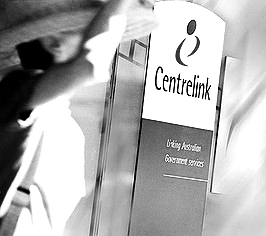DHS rejects $150,000 suggestion
 The Department of Human Services (DHS) has rejected some very expensive advice on how to improve its services.
The Department of Human Services (DHS) has rejected some very expensive advice on how to improve its services.
DHS, one of the largest and most-criticised federal departments, commissioned consultancy firm PricewaterhouseCoopers (PwC) to look at ways to meet its customer satisfaction goals.
PwC told it to abandon the target completely, as auditors saw no realistic way it would be achieved.
DHS has failed to meet its 85 per cent customer satisfaction goal for Centrelink for several years running.
Over 42 million calls to Centrelink were met with an engaged signal in just the first 10 months of this financial year, compared to almost 29 million in the 2015-2016 financial year and 22 million the year before that.
With public approval levels dropping fast, PwC was paid $150,000 for a 16-week review of how DHS measures success and performance.
PwC’s report to the Government, obtained by media outlets under freedom of information laws, told the DHS it needed “substantial change to the customer and service experience”.
The consultants said the target should be abandoned entirely and replaced with more reasonable and achievable goals.
“It's clear that a target of 85 per cent will not be achieved under all models for Centrelink without substantial change to the customer and service experience,” the report said.
“Consideration could be given to revising the KPI [key performance indicator] target to be in line with other global welfare providers and to be achievable based on historic performance.”
PwC said the department should take up new measures to avoid bias, rather than relying on voluntary surveys, but this too was rejected.
“No decision has been made to make any changes,” DHS spokesman Hank Jongen told the ABC.
“Given that many people accessing welfare are experiencing difficult circumstances, the customer satisfaction targets intentionally set a high bar.”
The consultants said unrealistic goals could undermine performance, ownership and accountability.
“Unattainable targets can result in motivation and performance decreases while increasing risk-taking behaviours,” the report said.
The department's latest performance figures will be published in an upcoming 2016-2017 annual report.







 Print
Print